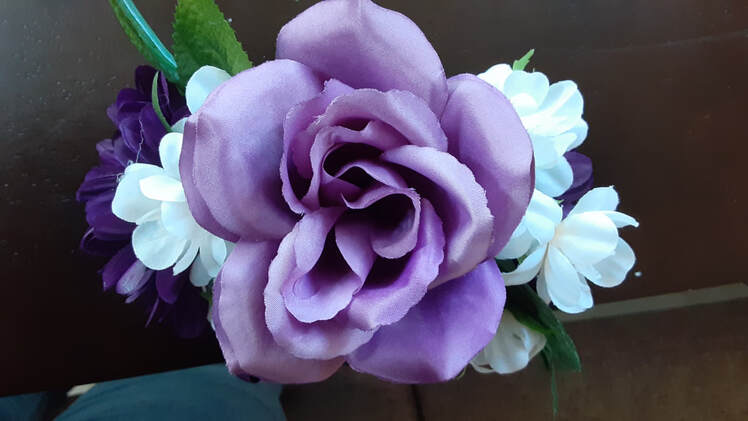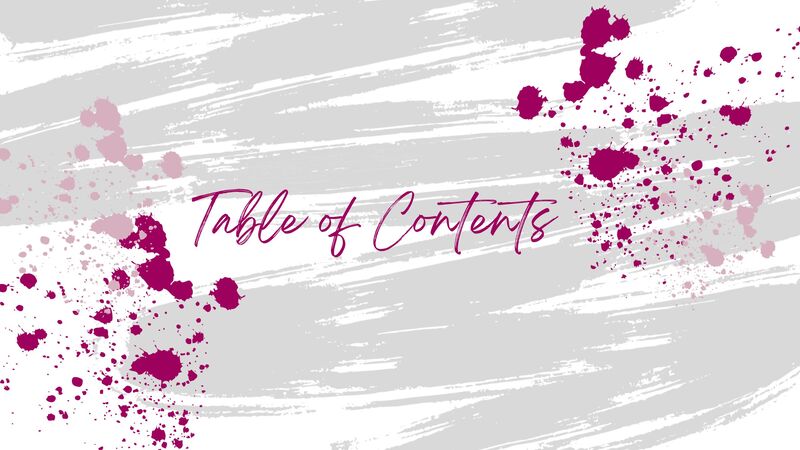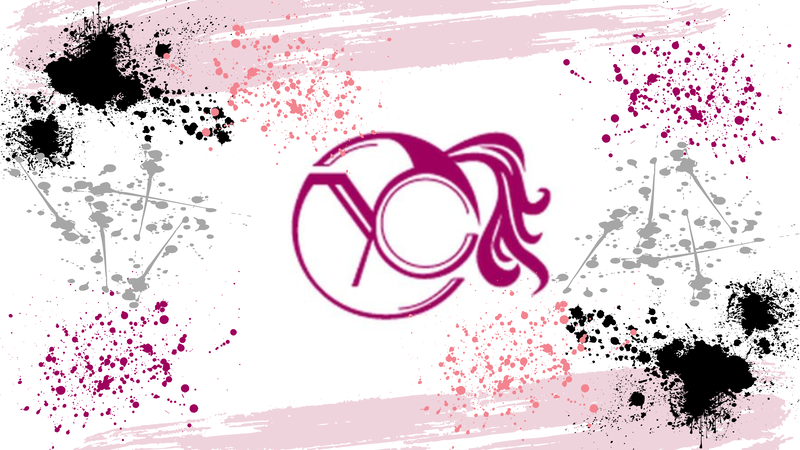|
It’s a little difficult to come away from routines that we are so used to. Especially if we have done these routines over and over. When we engrain routines into our lives through repetition, they become habits that are harder to break.
If you are an individual who has found it hard to trust in the past because of hurtful trauma, then I encourage you to look at your daily social habits. Once you do, you may find that there are points in your past social interactions that may cause you some embarrassment as you reflect on them. I have them too. And although these events will forever live in our memory and past, we can learn from these experiences in order to make sure the same mistakes will not be repeated. For some of us, we constantly live in those hurtful moments in which we were hurt by others. We feel as if we are justified in living in the past because no consequence was handed to those who injured us emotionally. However, like a drop in a still water that sends riffs throughout the surface, this causes more pain. A person’s unwillingness to continue with their lives makes them absent to those who love them. This is hard to imagine, but others who are close to you feel that anxiety and stress in ways that you may never know. Therefore, when you choose to trust, you are essentially letting go of that pain, and relieving those around you from reliving it with you. Freedom is then obtained by falling into the unknown, and trusting that you will be okay. Here are 5 reasons why trust will gain you freedom. #1 Trust eases anxiety Take a deep breath, hold it for 3 seconds, and let it go slowly when you exhale. The slow release that you feel as the air leaves your chest is exactly the type of ease that you should experience when you begin to truly trust again. When you lack trust in people, there are things that will inadvertently cause you anxiety. Most individuals do not go throughout the whole day plotting 3 or 4 steps ahead of another person. That is not normal for those of us who trust. However, those who lack trust will be always thinking of the next steps ahead. You cannot always anticipate the next move from anyone. There are way too many variables ahead that you have to plan for and each person is liable to make a move that you never even saw coming. Think of all the time that you have wasted in trying to get ahead of someone who may or may not have had malintentions for you. The fact that you have not even waited to see this individual’s true intention should be a red flag that you have deep rooted trust issues. Instead of wasting precious time in anticipating other’s moves, reallocate that energy into living a life full of love and fulfillment. Trust allows for this type of life. Anxiety does not. #2 Trust creates space for growth The ideal predator of the animal world encircles and traps their prey allowing for no escape from them. In this scenario, distrust is your predator, and you are its prey Distrust leaves most of us full of fear, paralyzed to continue on with life. You are unable to trust yourself to make the right choices. You are unable to create meaningful relationships because you distrust those around you. You are unable to feel safe because you are unable to trust your environment. How can your character grow in such a harsh mental terrain? Think about the release that I mentioned in the first reason why trust equals freedom. Think about the growth that you would attain if you moved yourself from such a barren wasteland to a garden full of life. Your life and heart will have ample amounts of nutrition in this new environment to foster growth for years to come. Although it takes more than trust to allow yourself to feel safe enough to continue to build, it certainly is one of the most important factors that will initiate such growth. #3 Trust allows you to become connected with those around you Connecting with others is very similar to effective communication. In my article 9 Easy Ways to Build Trust with Family, I discuss tips on effective communication. These tips are not limited to family members. They can also be applied to others around you. Trust allows for you to be fully engaged while communicating for several different reasons. Can you imagine being fully engaged in a conversation with another person if you thought that that individual had ulterior motives? I definitely cannot. Being around other people should not automatically make your internal hard drive go to war with itself. This is a symptom requires further exploring. When you take down those walls put in place to protect you from potential threats, you encourage others to do the same. I have seen multiple YouTube channels in which the same repetitive concept is displayed. The concept of the wealthy being completely out of tune with those of us who live everyday lives. This concept is quite interesting to me because, in a way it relates closely with my point. Connecting with others keeps you grounded to reality. I find it fascinating that these Youtubers have enough insight to see that, however, they do not see the same in themselves. Moreover, they lack the know-how to connect with their audience on a wider scale. How can we connect with an entertainer that does not share similar experiences, or is closed off to trusting those around them? I encourage you to think about this, and think about how this connects to you in your everyday life. How can you connect with others if you are closed off and think that no one really has the best intention for you? What type of individual would you be if you are not held back by someone or something? Would you be more reckless? For some the answer is yes. At our core, humans in general yearn to be part of a group that is accepting of them. It is the very reason why social groups flourish, and on a much smaller scale- you are happier when you see a group of friends that you haven’t seen in a long time. #4 Trust gives your life more meaning While trust allows you to connect with others, there are other ways that it helps your life have more meaning. If you are a trusting individual, your life will not be defined by a never ending battle. Trusting any process allows for any set goal to flourish on its own. The universe will respond to your willingness to any event that may come your way, and allow for success in each of your goals. Can you think of any time in which you held some reservation about a choice, just because you were full of uncertainty, doubt, and were paralyzed to go on? Later you found that the choice had slipped through your fingers. Did you realize then that doing nothing was the incorrect path? Life itself is full of twists and turns that branch off into more twists and turns. You have to be able to trust that you are able to navigate these paths with the skills that you learned from the past. #5 You become more resilient No matter how much they hurt, past events have encouraged you as a person to grow. You are able to take those experiences over to the next life event that comes your way. The end result: you become extremely resilient- able to overcome adversity as it comes your way. While this blog post remains light and full of positivity, allow me to instill some reality. The truth is, the more you trust the higher the chance that your trust in others will be taken advantage of in some shape or form. If you are currently reading this post then you are looking for reasons to trust others. Which means you may (or may have not) undergone a traumatic event that has caused you to think distrusting others was and maybe still is a bad idea. The good news is that you are still here. The hard past did not end you. You may be guarded, but you have the chance right here, right now, to turn that past into scar tissue. Your scars are what make you unique… and beautiful. You have the chance to overcome the pain, and share with others your experiences- just as I have. Don’t miss the opportunity. I’m rooting for you. Conclusion Make no mistake, your past- as painful as it may have been did not break you. Become free from those mental constraints that hold you back because of these 5 reasons. I guarantee that life will become much brighter and full of hope. Leave your comments below on how you feel trusting others will help you achieve your personal goals. I look forward to hearing from you soon.
0 Comments
Hello again and welcome back to this Sunday’s article.
Thanks for joining. This Sunday I want to go deep into the recesses of your mind and analyze some of your dreaming. Dreaming tends to bring things from the subconscious to the forefront. That’s why I thought it would be interesting to examine what one dreams about. All those deep, ugly things that you try to bury throughout the day usually make an unannounced visit in your mind while you are in REM sleep. Without distractions, you are able to pinpoint things that really bother you during your dreams if you are able to recall them. What happens when you sleep? Before going into the subject of dreaming, it may be useful to understand what happens when you sleep. When you go to sleep, you don’t just fall into REM sleep (Rapid Eye Movement Sleep). If you did, you would be diagnosed with a sleep disorder. Sleep consists of stages in which your brain eases in and out of throughout the night. It is the timing of these stages that allows sleep doctors to make diagnosis and effectively treat patients. The most well known stage is REM sleep, however there is Non-REM sleep that is further divided into subsections. They present differently, with different variations of eye movements, brain waves, and muscle tones. Abnormalities in any of these characteristics warrants further investigation. Dreaming Dreaming typically occurs in REM sleep. Your brain is fully active, responding to your subconscious. During this stage of sleep, your muscle tones should be non-existent. Typically, you only spend about 20% of the time when sleeping in REM sleep. Dreams may involve emotion. If unpleasant, they may disturb your sleep, causing you to wake up in a cold sweat. Emotional responses to dreams are subjective and unique to the person having the dream. If the person deems the dream is a good dream, their emotional response will be happy, content, and joyful. If a nightmare occurs, the emotional response will be anxiety, depression, or fear. Usually, what causes a person to seek help is when dreams interfere with normal activities of daily living, such as falling asleep at the wheel of a car due to lack of sleep. Why is evaluating our dreams important? As stated previously, when we dream our subconscious thoughts surface. We may be able to examine these thoughts while awake to dig deep into what really is eating away at our minds. There are circumstances in which dreams may be influenced. PTSD, or physical trauma to the brain may affect the quality of our dreams. Children often experience sleep terrors, in which they awake screaming, or jumping out of bed in fear. Certain neurological factors also influence our dreams and may contribute to sleep disorders. Medications may also be a culprit in how you dream. There are some medications that block REM sleep, therefore not allowing the patient to gain that restful state of sleep that we so desperately need in our lives. Getting Help As previously stated, most people get help when their lack of sleep gets in the way of their life. There are instances in which dreaming causes the person to act out their dreams. This is known as REM behavior sleep disorder (RBD). If the person is unable to recall what their dream was during the time behaviors were present, then their disorder will likely be classified as parasomnias. If dreams continue to disrupt your sleep, medical attention should be seeked. Depending on what the problem is, your doctor may refer you to a psychologist. Remember to bring a list of your medications to the doctor’s office to evaluate if the medications are causing your problems. |
AuthorYaritza Ellison has been an nurse since 2010. She has been essential to the healing process of many and seeks to continue to do so. Her passion for mental health and self help literature has lead her to launch justyari.org, where she aspires to coach young ladies navigating through work-life balance. Categories
All
|
Hungry for something else to read?
Check out the link below to find out about this amazing novel
Check out the link below to find out about this amazing novel
Copyright © 2022











